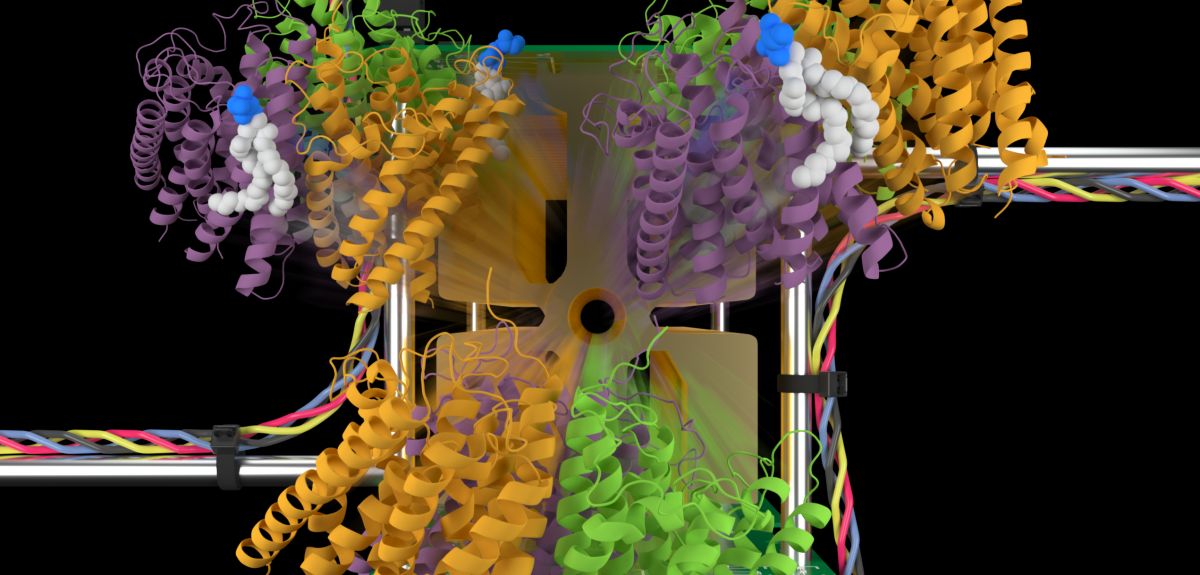
Unfolding role of cell's gatekeepers
Protein machineries embedded in the membranes of our cells act as 'gatekeepers' controlling everything transported in and out of every cell in our bodies.
Because these machineries, called membrane embedded proteins, are vital to the way our bodies function they are the target of at least 40% of drugs. But one of the problems of targeting these proteins is that they are known to be influenced by lipids and current methods often struggle to distinguish between the effects of lipids and drugs.
Now Oxford University researchers report in Nature that they have found a way to assess what effect lipids have on proteins by measuring how lipids resist being 'unfolded'. By using a technique called ion mobility mass spectrometry, that propels proteins and their lipids into a vacuum, they discovered that by measuring resistance to unfolding they could rank these lipids based on their ability to stabilise membrane proteins.
'We could see lipids binding to membrane proteins but we couldn't work out how to rank their effects,' Carol Robinson of Oxford University's Department of Chemistry, who led the research, tells me. 'However, by measuring resistance to unfolding we were able to observe big differences between the lipids.
'We have found that they can change their overall stability - quite dramatically - and this can lead to structural changes and also has implications for the function of membrane proteins. They were much more intimately linked than we first thought - important for function and also for conformational change.'
She explains that the research was originally considered controversial since it was unclear how relevant measurements made using such techniques would be: 'We didn't know that the measurement of resistance to unfolding would correlate so well with function and stability. The unfolding is performed in the gas phase while function and stability take place in a biological membrane – it is surprising that there is such a good correlation.'
The new findings could have important implications in the search for new drugs:
'This approach is readily applied to drugs since the same methods of ranking lipids can be used to rank drug molecules,' Carol explains. 'We also think that we will learn a lot about the synergy between lipid and drug binding - something that is often very difficult to assess with current techniques.'
A report of the research, entitled ‘Membrane proteins bind lipids selectively to modulate their structure and function’, is published in this week’s Nature.
 Bold birds show 'live fast, die young' attitude
Bold birds show 'live fast, die young' attitude Untangling Milky Way's magnetic personality
Untangling Milky Way's magnetic personality Tamiflu: an analysis of all the data
Tamiflu: an analysis of all the data MeerKAT is shape of things to come
MeerKAT is shape of things to come